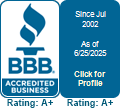Do you feel your eyes starting to glaze over when people use terms like “equity,” “variable rate,” or “EMV?” Well, we’re about to change that!

Learning the meaning of common terms used in finance (including “equity” and “EMV”) will not only make it more exciting to be part of financial conversations, but also start you on the road toward your better financial future… today!
Financial Terms Everyone Should Know
- Investment: This is an asset which has the potential to grow in value, such as real estate, stocks, certificates, and bonds. (Cars, unless antique and collectible, are not investments because they depreciate.) You can also invest in yourself by taking a class or learning a new skill that gives you the potential to earn more money in the future.
- Interest: This is the cost of borrowing money. When you make a deposit to a financial institution, you are lending them your money. Borrowing money from the same place you deposit your money is the best way to maximize the benefit of both. Credit unions are best at doing this because they are owned by their depositors.
- Dividends: This is the portion of a company’s profits which are distributed to the company’s shareholders. Credit unions pay dividends because members are owners. However, these earnings are considered to be ‘interest’ by the IRS. This means it is treated as regular income and not subject to capital gains taxes.
- Equity and Stock: These terms are often used interchangeably to represent partial ownership in a company. However, stock is a legal document representing a specific portion of ownership of (common shares) or rights to the earnings (preferred shares) of a company. Equity is the portion of an investment or asset that is free from the claims of others. If you own a house, for example, you may often hear phrases like, “I have 20% equity in the home.” This means that the amount you owe on the home is only 80% of its current value.
- Bonds: Most often used by governmental organizations (federal, state, municipalities, and school districts), bonds are a special kind of loan where you only receive interest payments over a specific period. Then, at maturity, the principal is repaid to you.
- Tax-deferred: This implies that money in an account will be taxed later when you take the money out. For example, funds going into your 401(k) or a traditional IRA are not taxed at the time of contribution, but will be taxed as you withdraw from it during retirement.
- Annual Percentage Rate (APR): The yearly cost of borrowing money through a loan. The APR, or interest, represents the percentage of the loan principal that you’re expected to pay back in addition to the loan amount.
- Annual Percentage Yield (APY): The interest you will earn back yearly on a savings or investment account.
- Automated Clearing House (ACH): A nationwide network that handles participating financial institutions’ transactions. You may see ACH in front of transaction details on your account statement, meaning they handled the transfer.
- EMV or Chip Technology: Every time you use a chip-enabled card at a terminal, the embedded chip generates a unique transaction code to prevent stolen data. Tip: Set up alerts for your debit and credit cards in AirTeller to protect yourself from card fraud.
- Direct Deposit: A service commonly used by employers to deposit regular monthly payments directly into your chosen account, rather than receiving a check. Most often, direct deposit is processed via ACH, and it is the safest and quickest way to get paid.
- Routing Transit Number (RTN): A 9-digit number that identifies a specific financial institution during a transaction.
- Share Account: This is a term specific to credit unions. A share account is a standard savings account, but it also represents your ownership, or share, in the credit union as a member.
- Variable Rate: This interest rate on a loan or certificate will adjust up or down after the initial period determined by the financial institution. After that initial period, it will continually fluctuate in intervals set by the financial institution, whether that be monthly, yearly, etc.
- FICO or Credit Score: This is a measure of your creditworthiness that tells lenders how well you manage debts and how likely you are to make on-time payments. FICO scores range from 300-850, and borrowers with scores above 670 are generally considered more reliable. Tip: Using My Credit Manager in AirTeller can help you better understand and control your FICO score.
- Bankruptcy: This is a legal process that lets you discharge, or clear, past-due debts. You can also use bankruptcy to protect your property as you enter into a legally-binding payment plan with your debt issuers. Bankruptcy has serious and long-lasting impacts to your finances, so it’s typically used as a last resort, and you should always talk to your creditors before taking this step.
How many of these terms were you already familiar with before you read this blog? Comment and let us know!



